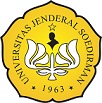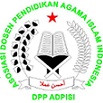Nalar Kritis Pemikiran Rasional-Sufistik Muhammad Abid Al-Jabiri dalam Ilmu Keagamaan
Abstract
This article examines the religious sciences in the thought of Mohammed Abid al-Jabiri which is well known, namely bayani, irfani, and burhani. Bayani is a source of knowledge from a text or reasoning from the text. Whereas irfani comes from science or methods of kasyf (dzauq) which are intuitive and sufistic. This epistemology is very difficult to rationalize, because one has to experience it for yourself if you want to know. Burhani holds that the source of knowledge is reason (ratio) or is called philosophical. The method used in this paper uses a philosophical approach starting from the epistemology of bayani in the form of text (nash), irfani in the form of direct experience, and epistemology of burhani based on reality (al-waqi), both natural, social and even religious realities (religious) in the perspective of Muhmmad thought Abid alJabiri. The thought contribution is expected to enlighten Islamic thought in facing the plurality of humanity both internally and externally, so that the correlation through this epistemological approach can be felt in the empirical world.
References
Abdullah, Amin, Tafsir Baru Studi Islam dalam Era Multikultural, (Yogyakarta: Kurnia Kalam Semesta, 2001).
Al-Jabiri, Muhammad Abid, Formasi Nalar Arab Kritik Tradisi Menuju Pembebasan dan Pluralisme Wacana Interreligius (Yogyakarta: Ircisod, 2003).
Al-Jabiri, Muhammad Abid, Nahwu Wa at-Turats: Qira’ah Mu’ashirah Fi Turatsina alFalsafi, (Beirut: al-Markaz al Inma’ al-Qalumni, 1986).
Al-Jabiri, Muhammad Abid, Pos Tradisionalisme Islam (Yogyakarta: LKiS, 2000).
Asy’arie, Musa, ‘Epistemologi dalam Perspektif Pemikiran Islam’, dalam Amin Abdullah dkk., Menyatukan Kembali Ilmu-ilmu Agama dan Umum: Upaya Mempertemukan Epistemologi Islam dan umum (Yogyakarta: Suka Press, 2003).
Asy-Syafi’i, Imam, Ar-Risalah, (Kairo: Maktabah Dar At-Turats, 1979).
Bahri, Samsul. ‘Bayani, Burhani dan Irfani Trilogi Epistemologi Kegelisahan Seorang Muhammad Abid Al Jabiri’, Jurnal Cakrawala Hukum, 11.1 (2017).
Clark, Peter, ‘The Shahrur phenomenon: A liberal Islamic voice from Syria’, Islam and Christian‐Muslim Relations, 7.3 (1996): 337-341.
Fawaid, Ahmad, ‘Kritik atas Kritik Epistemologi Tafsir M. Abid Al Jabiri: Studi Kritis atas Madkhal ila al Quran al Karim’, Ulul Albab Jurnal Studi Islam, 16.2 (2015), 157-175.
Khumaidi, Irkham, ‘Metode dan Penafsiran Syura Dalam Perspektif Muhammad Abid AlJabiri’, Jurnal Al-Qur’an dan Hadis, 8.2 (2007).
Muslih, Muhammad, Filsafat Ilmu Kajian atas Asumsi Dasar Paradigma dan Kerangka Teori Ilmu Pengetahuan (Yogyakarta: Belukar, 2005).
Mutansyir, Rizal, dan Misnal Munir, Filsafat Ilmu, (Yogyakarta: Pustaka Pelajar, 2006).
Raddon, Arwen, ‘Early stage research training: Epistemology & ontology in social science research’, Generic Skills Training for Research Students, (2010): 1-14.
Syahrur, Muhammad, Al-Kita wa al-Qur’an: Qira’ah Mu’ashirar, (Kairo: Sina Li an-Nasyr dan Damaskus: Al-Ahali, 1992).








